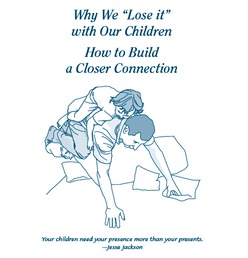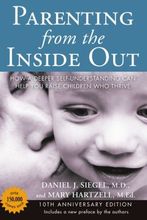|
All children feel powerless. They live in a world in which they have no control over their lives, from what they do with their days down to what they eat. Nor should they. Children do not have the cognitive capacity to make good decisions for their long-term health and well-being. They should have some say, but in general you are in charge of these little guys. It’s good for them. And it totally sucks for them. We all know what it feels like to have no power in your life. Having someone else tell you what to do, even if you know it’s good for you, is no fun. And kids also have the added challenge of everything being new. Imagine constantly being around other people who can do it better than you. You’ve just mastered the monkey bars, but miss 4th grader over there can do a flip. You’ve figured out 2-digit multiplication, but your older brother goes on about how easy that is that a dummy can do it. You’ve finally mastered sitting in class and focusing on your work by 6th grade, and suddenly the social milieu just became really really complicated and confusing. So, yes, it’s tough being a kid. But what can you do about it? At least they don’t have to worry about a boss and bills to pay and taking care of little growing human beings!! Well there is something you can do to help make all this change that kids naturally experience feel easier. And, surprise surprise, it involves play. Playlistening is the Hand in Hand Parenting Tool that engages the healing power of laughter to help children work through challenges and feel more powerful in their world. Feeling more powerful leads to higher self esteem. Higher self esteem means a child that perseveres more when the going gets tough and is more resilient when they fail. And let’s be honest, success involves a lot of failure. Here is how to playlisten with your child: Get your child to laugh. But not through tickling. Tickling can in fact create more feelings of powerlessness. Instead, find the gleam in your child’s eye and go for it. Play the less powerful role. Let them be the king or queen and you the willing servant. And incorporate themes about what your child is struggling with. Getting to be in the more powerful role in regard to a challenge helps children feel more in control of their lives and more able to meet the day. Here are some examples of Playlistening. My 4 year old nephew hates getting eye drops. His preschool has had several outbreaks of pink eye so he’s had to get them a lot. Logically, he knows they are good for him. His parents have talked with him a lot about how the medicine helps his boo boo, and he understands. He repeats this information himself with confidence and pride after he gets the eye drops. But the getting of them is absolutely terrifying. His parents have to literally sneak up on him and hold him down in order to get the drops in. Poor parents! They want to help their little guy. They know it helps, he knows it helps, but he feels so out of control in those moments that it’s just plain scary. Enter Playlistening. One day while he and I were rough housing on the bed I recalled this issue. So out of nowhere I started to back away from him, exaggeratedly yelling, “No! I don’t want eye drops!” He lit right up! He immediately started to smile broadly and his body language changed to look like someone who felt powerful and in control. He grabbed his sister and together they pinned me down while he pretended to put eye drops in my eyes. I wailed, but kept track of his response to make sure it was funny to him and not going over the line to feel scary. He feels enough of that in the real eye drop situation. Afterwards he soothed me and told me how the medicine helps. We did this several times over the course of a weekend visit. And each time he got to feel some control over the emotions that felt uncontrollable, by acting out the opposite role with me. Here is an example with an older child: S. is a 12 year old boy. He is super intelligent, a wiz with the computer, and has trouble following his mom’s instructions. They get into fights, usually in the morning over the routine. One day I came over and he and his mom had a bad fight that morning. I engaged him in one of his favorite games. He throws a ball against the wall and I try to get it from it. We always end up rolling on the floor fighting for the ball, peels of laughter coming from both of us. This day after he was warmed up with laughter I asked him to tell me exactly what he would like to say to his mom, totally uncensored. He unleashed his thoughts with a huge grin on his face and I acted the part of his mom, only in a very exaggerated evil villain sort of way. We yelled back at each other for a few minutes until it turned into a knock down fight, again laughing all the way. He knew it was play. He knew he can’t talk to his mom that way and he knew exactly how to control his body to keep it playful, just like my nephew did when we played. No one got hurt. But in both these instances these children got to express what was being bottled up and do it with laughter with someone who cares about them. And that’s the crux of Playlistening. Get your child to laugh, usually by laughing at yourself. And connect through that laughter to the love that is underneath the anger, the pain, the tears. Want to dive deeper into Playlistening or other parenting tools?
Sign up for a consultation for individual or group parenting support.
2 Comments
Sometimes we lose it on our kids. We don’t want to. We want to be loving, caring, parents present to our children’s challenges and helping them learn better ways. But sometimes we just don’t know what to do and we find ourselves relying on things our parents did, that we hoped to do better. We aren’t bad parents, we just don’t know how to keep it together in those tense, stressful moments.  Building Emotional Understanding Booklet from Hand in Hand Parenting Building Emotional Understanding Booklet from Hand in Hand Parenting According Patty Wipfler, founder of Hand in Hand Parenting and author of “Why we ‘lose it’ with our children in the “Building Emotional Understanding” booklets: “When you were a child, chances are that your parents did not hold you and listen to you warmly when you needed to cry. They probably were not kind when you had tantrums. And they may have forbidden the wild play that made you and other children laugh and feel powerful. They loved you, but the main parenting ideas available to them were based on controlling a child’s emotions by threat or by force. So it’s likely that many of the feelings you had as a child are still waiting to be heard. Your limbic system manages the memories that contain those unheard feelings, keeping them under wraps when you feel connected and competent. When you face challenges or you are tired, you run out of energy to guard those feelings. Then, your stored upsets are easily triggered.”  Brain research in "Parenting from the Inside Out" by Daniel Siegel, MD and Mary Hartzell, Ed.D. lets us know that: "When caring for children, it is inevitable that our own leftover issues will become activated in our minds….making it difficult to think clearly...and creat(ing) obstacles to collaborative communication with our children." (p.163-4) Even if we are not completely taken over by restimulated emotions from the past, our perceptions of what is happening may be subtly biased and we might find it difficult to find creative ways to solve the problems our children confront us with. There are myriad ways to address these stored feelings: everything from exercise, time with friends, alone time, therapy and other stress-relieving activities. But to truly release the feelings we need to vent. My definition of venting is: allowing yourself to feel and express all your feelings uncensored (even from your own internal sensor, who is the most judgmental of all!). No one wants to be a complainer, especially in this world of gratitude journals and above-all-negativity spirituality. And we certainly don't want to blame or unleash anger on anyone (which is hurtful and damaging). But to be human is to have experienced frustrations, disappointments, helplessness, confusion, shock, anger, worthlessness, the list goes on and on! We need to vent these feelings! Otherwise they stay unprocessed in the brain's limbic system. Venting is different from complaining in three major ways:
1- You know that your feelings are connected to old hurts from the past (even if you don’t believe it in the moment). 2- You and your listener are consciously choosing to vent in order to feel and release feelings (It is a planned vent, instead of just complaining or losing it on a whim). 3- You are using your venting to feel and release as much as possible (as opposed to avoiding the feelings, which is what complaining does). You vent with an adult so you don’t “leak” that vent (aka “lose it!”) with your children. You may still want them to change their behavior, you may still want more from your spouse, and you can have all those changes! In fact, after venting your ability to have the conversations and make the changes needed happen will be much easier as your limbic system will be freed up from the stuck emotions. So here’s your call to action: Find a friend who will do this kind of venting with you. Set up a time and set a timer. For the first half you vent and your partner just listens; no advice, no suggestions, just heartfelt listening to those buried feelings. Then switch. That’s it. Then notice how your days are different over time. This is the basis of the Hand in Hand Parenting Tool called Listening Partnerships. |
AuthorKaren Wolfe, MFT is a psychotherapist in San Francisco and the East Bay. She is passionate about helping children and families thrive and has particular expertise with children with exceptional learning and sensory styles. Archives
August 2016
Categories
All
|
|
2354 Post St, Suite B,
San Francisco, 94115 |
3655 Grand Avenue,
Oakland, CA 94610 |
Greenwood Court,
Orinda, CA 94563 |
